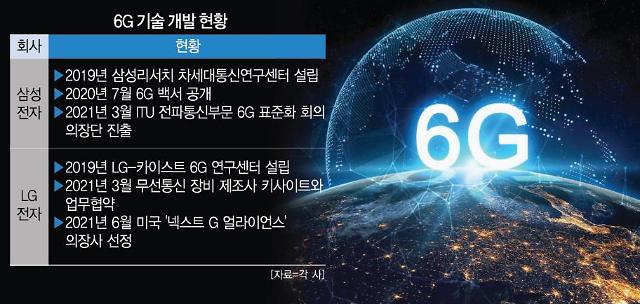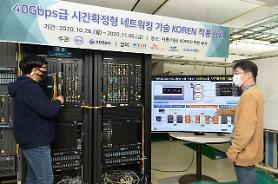
[Aju News DB]
SEOUL -- South Korea unveiled a five-year state project to spend some 220 billion won ($193 million) on the development of core technologies for 6G telecommunication while stepping up joint research and cooperation with the United States. South Korea aims to achieve the world's first commercialization of 6G mobile telecommunication in 2028.
The investment was presented on June 23 at a 6G strategy meeting attended by policymakers, company officials and experts. "As the next-generation mobile network is the foundation of digital innovation, we should play a bold and challenging role together to lead the international market in the 6th generation era based on our experience and know-how in the network field," Science and ICT Minister Lim Hye-sook said in a statement.
Acting U.S. ambassador Robert Rapson watched the signing of a joint research cooperation agreement between the Institute for Information communication Technology Planning and Evaluation (IITP), a state body affiliated with the Ministry of Science and ICT, and the National Science Foundation (NSF), a U.S. agency that supports fundamental research and education in all the non-medical fields of science and engineering.
A 6G network can be commercialized only when a high-performance network on the ground and satellite communication are combined. Researchers have called for the early and pre-emptive development of 6G technologies. Companies have tied up with research bodies to secure core 6G technologies.
The Electronics and Telecommunications Research Institute (ETRI), a state-funded body in the wireless communication domain, has been working on the terahertz (THz) frequency band that could potentially provide a means to meet the 6G requirement of terabits per second data rate. In June, Samsung Electronics demonstrated a 6G THz wireless communication prototype in collaboration with a research team from the University of California Santa Barbara (UCSB).
In a white paper released in 2020, Choi Sung-hyun, head of Samsung's advanced communication research center, said that 6G would be characterized by the provision of advanced services such as truly immersive extended reality (XR), high-fidelity mobile holograms and digital replica. XR encompasses a wide spectrum of hardware and software that enable content creation for virtual reality, mixed reality and cinematic reality.
Copyright ⓒ Aju Press All rights reserved.



